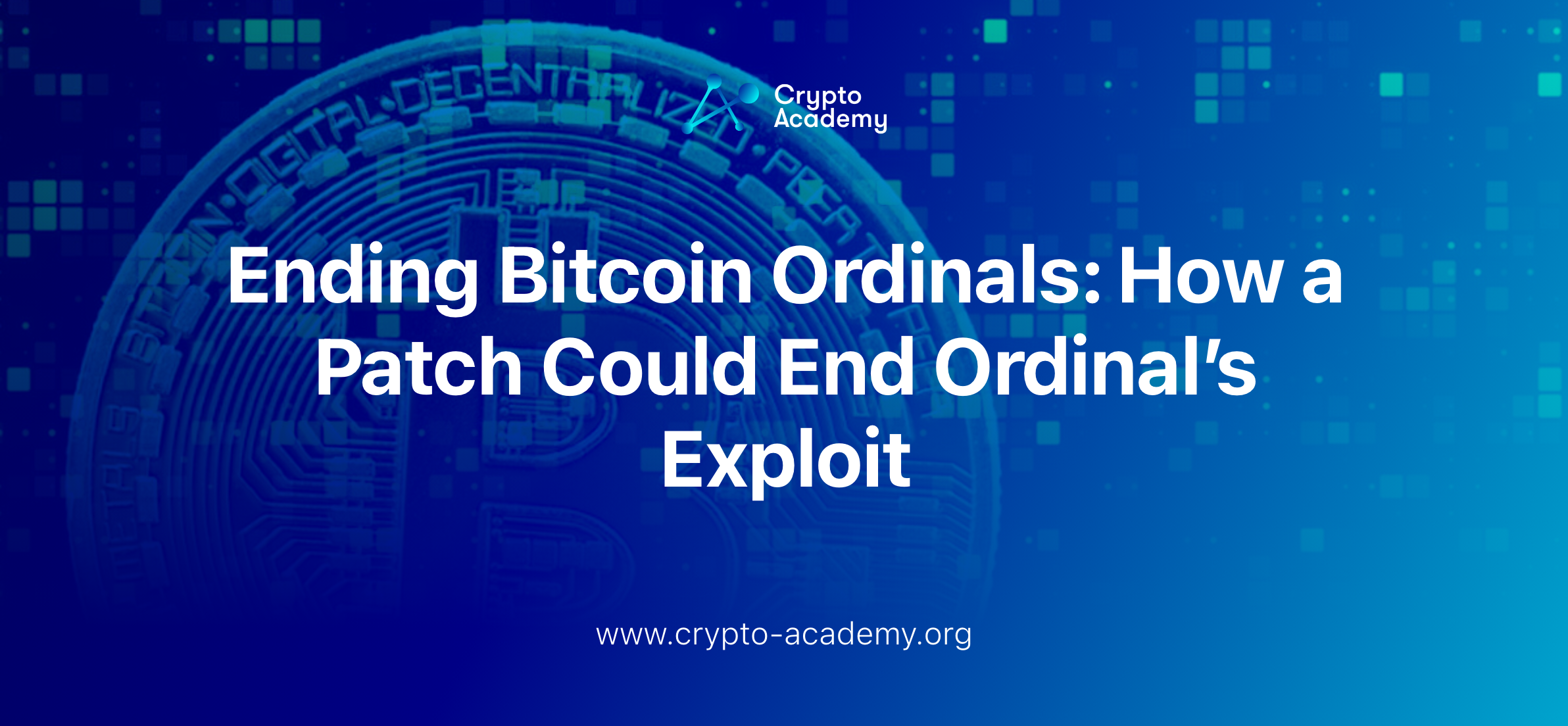Ending Bitcoin Ordinals: How a Patch Could End Ordinal’s Exploit

A Bitcoin Core developer suggests a patch could end Bitcoin Ordinals, citing exploitation of a data size limit bug.
Recently, a Bitcoin Core developer has highlighted a significant issue within the Bitcoin network related to Bitcoin Ordinals. This issue pertains to an exploitation of a vulnerability, which currently allows inscribers to surpass the data size limits set within the system. This revelation has stirred discussions in the cryptocurrency community, especially regarding the potential impact of a forthcoming patch that could alter the current state of Bitcoin Ordinals and BRC-20 tokens.
Understanding the Core Issue
The heart of the matter lies in a bug within the Bitcoin Core, a vulnerability that inscribers have been exploiting to embed excessive data on satoshis, the smallest Bitcoin unit. Since 2013, Bitcoin Core has enabled users to apply limits to additional data in transactions. However, inscribers have found a way around this by disguising their data as program code, thereby bypassing the set limits. This exploitation contributed to network congestion, as blockchain is processing more data than intended.
The latest update to Bitcoin Knots, which is an offshoot of Bitcoin Core with experimental features, has addressed this bug. This fix could signify a significant change for Bitcoin Ordinals and BRC-20 tokens. If the same fix applies to Bitcoin Core, it could essentially halt the creation of new Bitcoin Ordinals and BRC-20 tokens that have been contributing to the network congestion.
Despite the update in Bitcoin Knots, Bitcoin Core’s upcoming v26 release remains vulnerable to this issue. There is hope within the developer community that this will be rectified in the v27 release slated for next year. Furthermore, the chief technology officer of Ocean, a decentralized mining protocol, has indicated that the fix in Bitcoin Knots is a step towards mitigating the exploitation by what they term as ‘modern spammers’.
The Ordinals Protocol and Network Congestion
The Ordinals protocol, introduced in January 2023 by Casey Rodarmor, allows users to inscribe data and non-fungible tokens onto satoshis. This has led to an increase in network congestion on the Bitcoin network. The current situation is such that there are over 275,000 unconfirmed transactions, with the average cost for medium-priority transactions having risen substantially.
Lastly, the controversy surrounding Bitcoin Ordinals is not just limited to technical aspects. There is a growing debate over the legitimacy and impact of ordinals on the Bitcoin ecosystem. Some, like the aforementioned developer, view it as an attack on Bitcoin, causing irreversible damage to the network and its users.

Comments are closed.